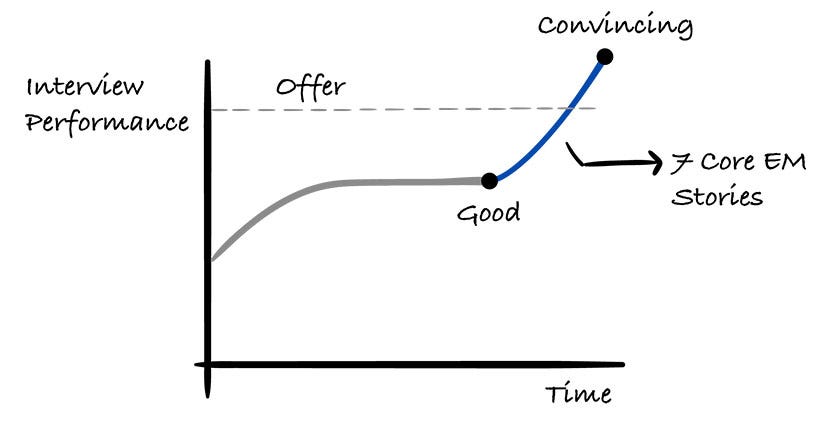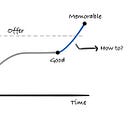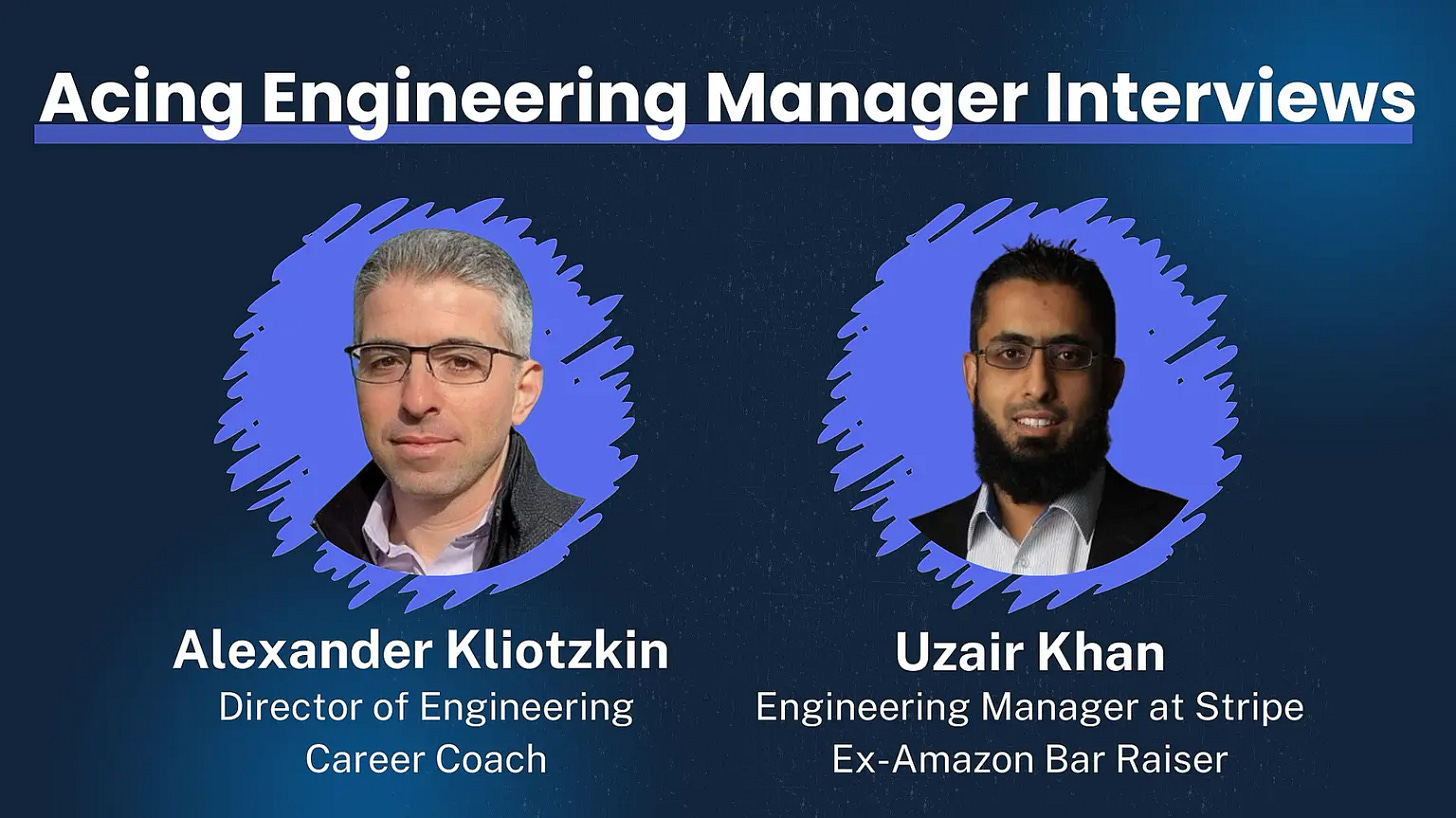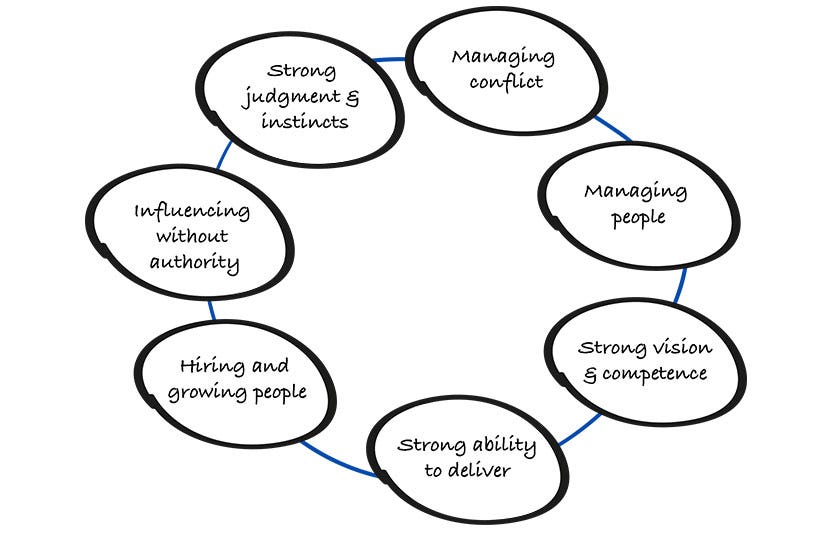7 Must-Have Engineering Manager Stories That Will Land You the Offer
7 battle-tested stories from 50+ successful EM interviews!
Intro
I held many engineering manager interviews in my career as an interviewer, and this is my top tip for being successful in a behavioral interview:
The most powerful thing that will showcase you as a competent engineering manager: Stories.
Good stories often mean the difference between landing the offer and not, and the reason is that they showcase your experience, the way you think, and your approach to solving problems.
So, the main question that we want to answer today is:
How to craft stories that will move the needle and get you the offer in your next engineering manager interview?
Luckily, we have Alexander Kliotzkin with us today. He is sharing in detail 7 must-have stories that will make you successful in EM interviews!
This is our second collab with Alex, and I highly recommend also reading the first article we did together to get a comprehensive overview of how to be successful in EM interviews:
Introducing Alexander Kliotzkin
Alexander Kliotzkin is an experienced tech leader with 16+ years in the engineering industry. He is a Director Of Software at Infineon and also a Career & Leadership Coach.
Together with Uzair Khan, Engineering Manager at Stripe, they are teaching a popular course called: Acing Engineering Manager Interviews, where they help EMs break through the interview process and land their Engineering Manager offer.
Check the course and use my code ENGLEADER10 for 10% off. The next cohort starts September 6.
The Harsh Reality About EM Interviews
After coaching over 50 engineering managers through interviews at Amazon, Meta, Palo Alto Networks, and countless other companies, I've witnessed a brutal truth:
Most talented EMs fail not because they lack experience, but because they don't understand what interviewers are actually evaluating.
EM interviews aren't about proving your technical prowess. They're psychological deep-dives into who you are when the pressure is on. They test your character, maturity, and emotional intelligence through behavioral stories.
Each question has an underlying leadership competency that interviewers are hunting for. They're not just listening to your story → they're analyzing:
how you think,
how you handle adversity, and
whether you have a systematic approach to lead a team through uncertainty.
Here's what I've learned from watching hundreds of interviews:
The candidates who get offers aren't the ones with perfect stories. They're the ones who can authentically demonstrate leadership competencies through real, messy experiences.
Very important: Don't fabricate the "perfect" story where you made all the right moves and saved the day. Interviewers will ask follow-ups, and if you've embellished, you'll get caught. Raw authenticity beats fictional perfection every time.
The 7 Leadership Competencies That Make or Break Your Interview
Every behavioral question maps to one of these core competencies. Master these stories, and you'll walk into any EM interview with confidence:
Managing underperformers → Managing people
Team motivation → Strong vision & influence
Sustainable delivery → Strong ability to deliver
Team scaling → Hiring and growing people
Stakeholder conflicts → Influencing without authority
Decision making under uncertainty → Strong judgment & instincts
Team Conflict Resolution → Managing Conflict
Let's dive deep into each one.
Story #1: Managing an Underperformer
"Tell me about a time you managed an underperformer"
This is hands-down the most common EM interview question. It evaluates your ability to build relationships, handle difficult situations, and make tough decisions when team performance is at stake.
Where Most Candidates Fail
They think they need to come out looking perfect. They either spend too long justifying their decisions or skim over the messy interpersonal details.
But here's the truth: This question evaluates exactly how you deal with conflict.
Interviewers want to see the difficult conversations, conflicting viewpoints, and real human dynamics.
Other red flags that kill your chances:
Passing decisions to HR or your manager
Waiting too long to act (hoping it resolves)
Saying "we made a plan" without specifics
Not showing backbone for difficult conversations
Glossing over interpersonal dynamics
Framework
Start with your philosophy, then show it in action:
Present your mental framework for handling underperformers and high performance teams
Establish your trigger point → what makes you act?
Show the difficult conversation → don't gloss over conflict
Detail your improvement plan → be specific
Own the outcome → good or bad
Share your learning → what would you do differently?
Story
Context & philosophy: "One of my senior engineers started missing sprint commitments over two consecutive sprints. His velocity dropped 40%, and team morale was suffering. My philosophy is simple: one underperformer affects the entire team's performance and sets dangerous precedents. But, I do my best not to jump to conclusions → I always seek to understand first."
Difficult conversation: "During our 1:1, I discovered he was struggling with our Spring Boot stack. He was a senior engineer I'd inherited, who had experience with Spring Boot, but never on major features. He felt insecure and was spending excessive time on basic concepts, which created a shame spiral."
Plan: "We created a development plan: paired him with a mentor, established weekly check-ins with specific output metrics, and set a 30-day improvement timeline. I also made it clear that future struggles needed immediate communication, not silent suffering."
Outcome & learning: "After a month, he was performing to expectations and became one of our strongest contributors. My key learning: I should have had clearer conversations about role evolution upfront. The upskilling conversation should have been proactive, not reactive."
Story #2: Keeping Your Team Motivated
"How do you keep your team motivated/engaged?" / "What's your leadership style?"
This question essentially evaluates your leadership style. Your ability to influence your team in a sustainable manner. Motivation is not a one-time act but a continuous process that goes beyond pep talks, free lunches, and short-term incentives. You need to show you understand what it takes to influence your team, and not just go by gut-feel.
Where Most Candidates Fail
They're all over the place without a structured answer, leaving the impression they don't have a real system. They rely on generic responses about team lunches and bonuses instead of demonstrating a thoughtful leadership philosophy rooted in concrete actions.
Framework
Present your system, then show it in action:
Your leadership philosophy on high-performing teams
How you connect individual goals to team/org objectives
The culture you intentionally establish and maintain
Concrete examples of guiding teams through adversity
Story
My motivation framework → "MAP"
Meaning → craft a story that links your work to customer & company impact
Autonomy → give ownership with clear guardrails and trust
Progress → make steady wins visible; celebrate learning as much as shipping
Situation: "Last year I inherited the Checkout & Payments team, 14 engineers who had just finished a stressful PCI audit. Two weeks later the CEO announced a fast-pivot: launch in three new countries within six months. Morale was shaky and burnout risk was real. My job was to re-ignite motivation, keep the team whole, and still deliver the multi-country launch on time."
Action (using MAP):
Meaning:
Ran a half-day off-site with a mission: "One-click checkout, anywhere in 200 ms."
Brought in Customer Support to replay actual cart-abandon calls so engineers felt the stakes.
Autonomy:
Met 1:1 with every engineer; mapped their growth goals to upcoming work (e.g., Brody wanted deeper infra work, took latency SLAs; Ana interested in leadership → owned Brazil payments track).
Published an OKR chart where people ranked what they wanted to work on.
Progress:
Introduced bi-weekly demo days and a "kudos bot" that posts user-facing wins.
Exposed live morale and delivery metrics on a public dashboard; if morale <7, we commit to one fix within a sprint.
Result: "Morale score rose by 10% in three months (pulse survey). Zero attrition, two senior engineers who were interviewing externally withdrew their applications. We hit the six-month launch; new-market GMV up 12% Q/Q, and our eNPS question “I understand and believe in the team vision” jumped 26 points."
Important to mention: MAP Framework gives me a repeatable playbook, start with purpose, pair autonomy with guardrails, and make progress visible to sustain motivation even under aggressive timelines."








